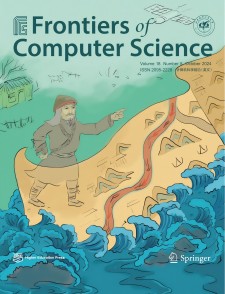JAPO:学习连接和下推顺序,实现云原生连接优化
IF 4.6
3区 计算机科学
Q2 COMPUTER SCIENCE, INFORMATION SYSTEMS
引用次数: 0
摘要
在本文中,我们介绍了通过 DRL 学习加入和下推顺序的 JAPO。其主要思想是,DRL 代理通过监控尝试不同行动的回报和延迟,根据经验学习更好的决策。结果表明,我们的方法能根据连接顺序和下推顺序生成良好的计划。我们还通过实验证明,我们的方法可以选择性能良好的分布式索引位置。未来,我们计划将 JAPO 部署到实际系统中执行,并在 JAPO 中考虑更多因素,如不同的连接类型。本文章由计算机程序翻译,如有差异,请以英文原文为准。
JAPO: learning join and pushdown order for cloud-native join optimization
In this paper, we introduce JAPO which learn the join and pushdown order through DRL. The main idea is that the DRL agent learns better decisions based on the experiences by monitoring the rewards and latencies via trying different actions. The results show that our method can generate good plans both on join order and pushdown order. We also show that our method can select the well-performed distributed index placement via experiments. In the future, we plan to deploy JAPO to real systems execution and consider more factors in JAPO, such as different join types.
求助全文
通过发布文献求助,成功后即可免费获取论文全文。
去求助
来源期刊

Frontiers of Computer Science
COMPUTER SCIENCE, INFORMATION SYSTEMS-COMPUTER SCIENCE, SOFTWARE ENGINEERING
CiteScore
8.60
自引率
2.40%
发文量
799
审稿时长
6-12 weeks
期刊介绍:
Frontiers of Computer Science aims to provide a forum for the publication of peer-reviewed papers to promote rapid communication and exchange between computer scientists. The journal publishes research papers and review articles in a wide range of topics, including: architecture, software, artificial intelligence, theoretical computer science, networks and communication, information systems, multimedia and graphics, information security, interdisciplinary, etc. The journal especially encourages papers from new emerging and multidisciplinary areas, as well as papers reflecting the international trends of research and development and on special topics reporting progress made by Chinese computer scientists.
 求助内容:
求助内容: 应助结果提醒方式:
应助结果提醒方式:


